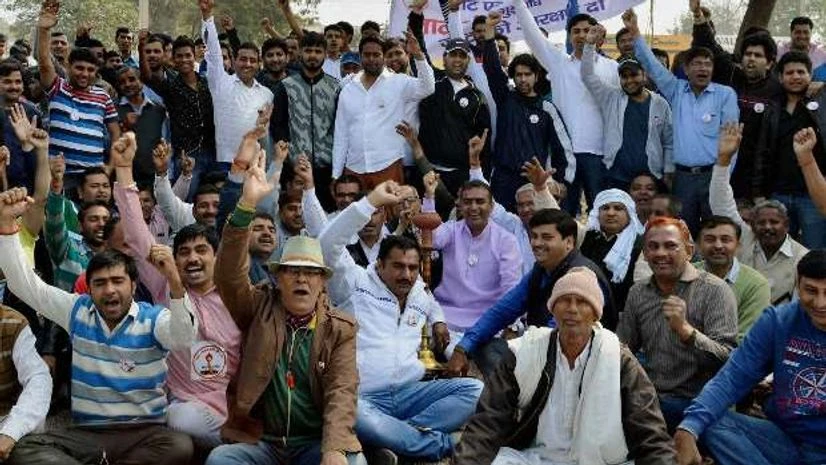Jats, who have been carrying out an agitation in Haryana for reservation for the last 28 days, will organise 'Black Day' in the state tomorrow.
Yashpal Malik, president of the All India Jat Aarakshan Sangharsh Samiti (AIJASS) which is spearheading the agitation, said that tomorrow the community members will wear black turbans, caps and ribbons and armbands to protest the government's policies.
"From March 1, the protesters will not cooperate with the government. No one will pay power, water bills and instalment of loans that they owe to the government," Malik said.
He said Jats from Delhi and Uttar Pradesh will protest in the national capital on March 2 and submit a memorandum on the quota issue to the President.
They also plan to gherao Parliament, the date for which will be announced on March 2.
Also Read
Malik said a large number of Jats supported by many other people held peaceful demonstrations at Balla village in Karnal district, Mayyar in Hisar, Jassai in Rohtak, Raswala Chowk in Jhajjar, Ikkas in Jind, Jainpur Jattan in Kurukshetra, Deban in Kaithal and Anaj Mandi in Yamuna Nagar.
Besides seeking quota in education and government jobs under Other Backward Classes category, the demands of the Jats include release of those jailed during last year's agitation, withdrawal of cases slapped during the protest and government jobs for the kin of those killed and injured while taking part in the stir.
The main opposition party in Haryana the INLD has openly come out in support of the agitating Jats this time and asked the government to meet their demands.
In view of the fresh Jat stir, paramilitary forces have been deployed in sensitive areas, while the state police is maintaining a strict vigil.
Police are also keeping a vigil near the statues of various state icons in sensitive districts to thwart any act of vandalism.
As many as 30 people were killed and property worth crores of rupees was damaged at many places in Haryana during last year's Jat stir which had turned violent.
Rohtak and some of its neighbouring districts, including Sonipat and Jhajjar, were the worst hit by the violence.

)
